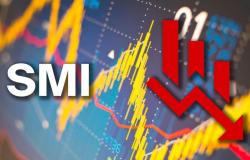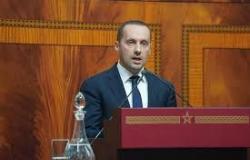The government’s decisions during the Covid period seem to us to have had a lasting impact on our way of doing business. Indeed, new information technologies and biotechnologies were presented as the panacea for society, even though they were used for the purposes of segregation and social surveillance. Finally, this time allowed us to see that with a dose of well-distilled fear, society was ready to blindly adhere to the transhumanist discourse and its techno-solutionism in the service of the illusory mastery of life.
We offer you the keen point of view of anthropologist Daniela Cerqui, professor at the University of Geneva, who has been studying technological and technoscientific developments for twenty-five years. She questions, in particular, what the doxa calls “good practices” in order to reveal the underlying society. (Less!)
How has the covid period influenced the dogma of “mastery” of life?
Daniela Search: The covid period arrives like a hair in the soup in a kind of linearity which tends towards an ever-increasing “mastery” of the living and the human where it is a question of repairing, increasing or even extending life . Indeed, we are getting closer and closer to this “mastery” with biotechnologies and so-called information technologies which tend to define humans as imperfect. In this logic, humans seem to have until now only waited for the grace of these new technologies to increase their performance.
The covid period has highlighted this. At the end of winter 2020, we could have believed in a breaking point of the “awareness” type in relation to the fact that it is impossible to control everything, especially life. Then, very quickly, the triumph of the biotechnological promise took over with the speeches on vaccines and their marketing a few months later.
What remains of the experimentation with medicine without a doctor, which replaces with tests the diagnosis resulting from the expertise of the doctor and his relationship with his patient?
The covid period has only accelerated certain trends that were already present in embryo. For example, telemedicine increases the distance between doctor and patient. It reinforced a transformation of medicine that was particularly visible in radiology: that of the medicine of touch into a medicine of sight. Government measures taken around covid have helped to radically reduce resistance to digitalization.
The social acceptance of having to “show your credentials”
Indeed, proof was given that it was possible to be kept alive by being just a number on a test and downloading an app to the smartphone, which allowed those who followed the rules to be controlled and to access places of sociability. In the end, the social acceptance of having to “show a white hand”, as well as that of mediating more and more areas of life through digital technology – such as teaching for example – was encouraged.
Isn’t the corollary of this also a certain violence?
Yes, the use of these technologies goes hand in hand with a multiplication of sources of exclusion and discrimination for those who cannot meet the access criteria or who resist their use. In the particular case, the resistance was based on the defense of individual freedom in the face of the takeover by Public Health. On the other hand, these technologies make it possible to immediately obtain services, without the need for travel or physical contact. The experimentation which took place during the covid period is a strong argument for advancing this type of society and, in fact, legitimizing these instruments of exclusion and discrimination.
It is very paradoxical, because all these technologies – biotechnologies and information technologies – are sold and promoted from the angle of equality not only by their designers but also, and above all, by the political world which, apart some critical voices, seems truly convinced of their necessarily positive impact on society. This speech touts that once everyone is connected, there will be equal access to knowledge, prosperity and health. Thus, each technological invention in turn takes over the promotion of this ideology. Currently, artificial intelligence is the standard bearer.
During this covid period, how has the definition of health evolved?
The definition of health given by the World Health Organization is made up of two aspects: the absence of disease or infirmity and physical, mental and social well-being. It appeals to me, because transhumanism is already included there. In the sense that, in our society which constantly creates needs and which associates “more” with “better”, well-being is constantly added with new elements of comfort.
During the covid period, these two aspects were highlighted in two stages. At the start of the crisis, the illness reminds us of our mortal condition and sends us back, willy-nilly, to return to a sober definition of health where all these aspects of comfort that we have added little by little as being essential are revealed. be nothing but capital gains. The State wanted us to stay alive and, in a society where rationality and transhumanism serve as dogma, this end translates into the restriction of freedoms. This narrow vision of health has given rise to resistance.
Conditions of social participation profoundly transformed
Secondly, vaccines appear and all restrictions are lifted. According to the authorities, being vaccinated, and therefore adhering to technoscience, means being able to live again in society. And those who do not want to be vaccinated are wrongly accused of not taking others into account. The conditions of social participation have therefore been profoundly transformed.
What are the consequences of a society whose sociability is built on the use of technological tools (biomedical or information technologies)?
This raises the question of the foundations of social inclusion and life in society. When the inclusion criteria are restricted to being the “good little soldier” of technoscience and this fact is supported by government coercive measures, it is the definition of the human as homo œconomicus that shines through. A threat to physical life therefore translates into a threat to the economy expressed by the argument “the individual must remain alive and healthy in order to continue to consume and produce”. This reasoning would be called into question if our choice of society was based on a criterion other than rationality, such as for example on sociability.
What does the population’s support for an untested GMO technology, such as the covid “vaccine”, say?
Support for the vaccine was massive, this shows that these people were ready to have a vaccine of this nature imposed on them and that they had blind faith in the scientific promises. This happened in a few stages: the awareness of not having everything under control, when covid arrived, induced a panic which was quickly calmed by the technoscientific discourse promising a vaccine. Then, putting it on the market without the usual fifteen years of hindsight brings relief.
Ultimately, taking the vaccine resolves the dilemma produced by the panic of non-control. In addition, adhering to the technoscientific discourse allows the absence of questioning of scientism and the strengthening of one’s faith. This is how the vast majority of people get vaccinated. Note that scientism is a strong belief system since it advances under scientific cover, which would convey neutrality and positivity.
Were there no critical voices?
Yes, small pockets of resistance were heard and perhaps even strengthened. This media coverage has undoubtedly allowed some people to wonder for the first time about the vaccination of children in the face of the risk posed by the disease or the side effects of pharmaceutical products, for example. Normally, it is very difficult to question the omnipresent technoscientific discourse.






